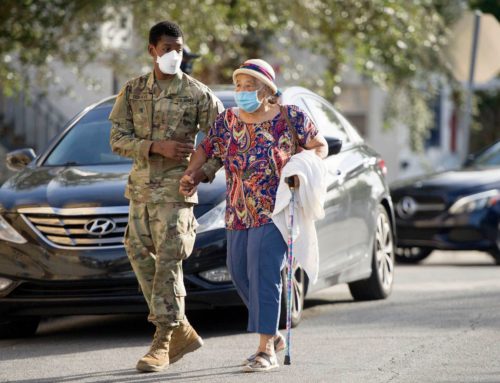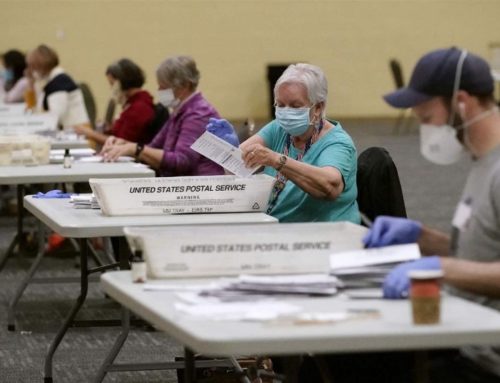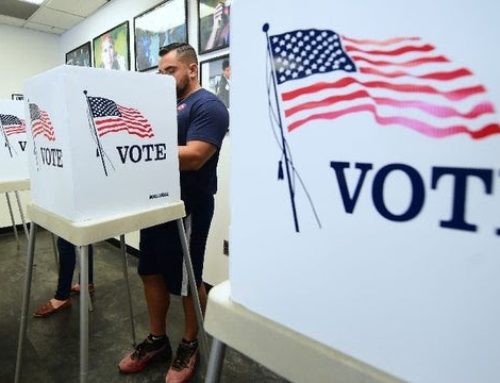Many Americans are having to face decisions that were unthinkable just two months ago. Essential worker protections are lacking. Over 35 million Americans have filed for unemployment aid since the President declared a national emergency on March 13. Tens of millions of Americans may lose employer-sponsored healthcare as they lose their jobs. And lines stretch for miles at food banks in states big and small.
Food insecurity has become a major fallout from COVID-19’s impact on the economy. Twice as many Americans now find themselves dealing with food insecurity compared to before the coronavirus crisis. Without additional stimulus and further economic shock, more families are likely to need food support. Kids are particularly vulnerable given school closures across the country. All the while, agricultural producers and suppliers find themselves with too much supply due to the decreased demand from restaurants and other end users. Our food supply chain must be treated as a national security priority.
School nutrition programs are an important part of the solution. While schools are closed across the country, school nutrition professionals continue to work on the front lines to tackle food insecurity in their communities. But while many school districts have maintained fixed expenses such as salaries, they have taken on unanticipated expenses such as hazard pay and transportation costs. Further, schools are serving less meals that are eligible for reimbursement as they work to provide meals to those that are hungry in the communities they serve. Congress must provide more supplemental funding to sustain school nutrition programs during this crisis and reimburse schools for their temporary increase in costs due to packaging food, transporting food to sites and employee time.
To ensure we have an equitable response to the COVID-19 crisis, we must also focus on increasing food assistance for low-income families through expanded Supplemental Nutrition Assistance Program (SNAP) benefits. This includes suspending the time limits for how long individuals and families can remain on assistance. The federal SNAP is the nation’s most important anti-hunger program. Before COVID-19, it helped 40 million low-income Americans afford a nutritionally adequate diet. In response to the pandemic, the U.S. Department of Agriculture (USDA) has increased SNAP benefits to $2 billion per month across all 50 states and 3 territories. As millions more Americans face uncertainty because of the pandemic, the federal government should raise maximum SNAP benefits families can get and suspend the program’s three-month time limit on benefits for jobless adults who are not raising children in their homes. The emergency SNAP provisions enacted by Congress and USDA so far, which include a temporary suspension of the time limit, are in effect only for when the public health emergency is in effect. Therefore, the provisions and waivers that have allowed for food support to millions of Americans in this emergency will very likely end before the economy recovers.
E Pluribus Unum is advocating that SNAP benefits be increased by 15%, eligibility expanded until the economy shows solid signs of recovering from the downturn, and all waivers should extend at least through the end of 2020. Further, the USDA must allow the use of SNAP benefits for online grocery ordering and delivery, expand and extend Pandemic EBT cards, and allow the use of SNAP at restaurants through an expanded Restaurant Meals Program. Rather than take a state-by-state approach, making some of these decisions at the federal level ensures more families don’t have to go to bed hungry. And because states administer SNAP benefits, the federal government should provide additional funding to meet the rising demand for service.
The Families First Coronavirus Response Act provided options for emergency SNAP supplements to states, along with some flexibility. Without national mandates, states should take advantage of this flexibility to maintain benefits to households with children missing school meals, while also removing barriers such as unnecessary work requirements and approving applications for SNAP over the phone or online rather than in person.
The HEROES Act recently passed by the House of Representatives includes many of these key food security provisions, including the 15% SNAP increase. But we must do more and act faster as key waivers and temporary provisions are set to expire in a matter of days and weeks, not months.
Together, we can ensure no kid goes hungry. Together, we can ensure that the economic fallout from this crisis does not land on the shoulders of essential workers and their families.
For more on food security and E Pluribus Unum’s proposed, equitable solutions to this critical problem, visit our website for our new 2020 policy agenda, “Roadmap to an Equitable Response, Recovery & Resilience”.
Mitch Landrieu
Founder and President




